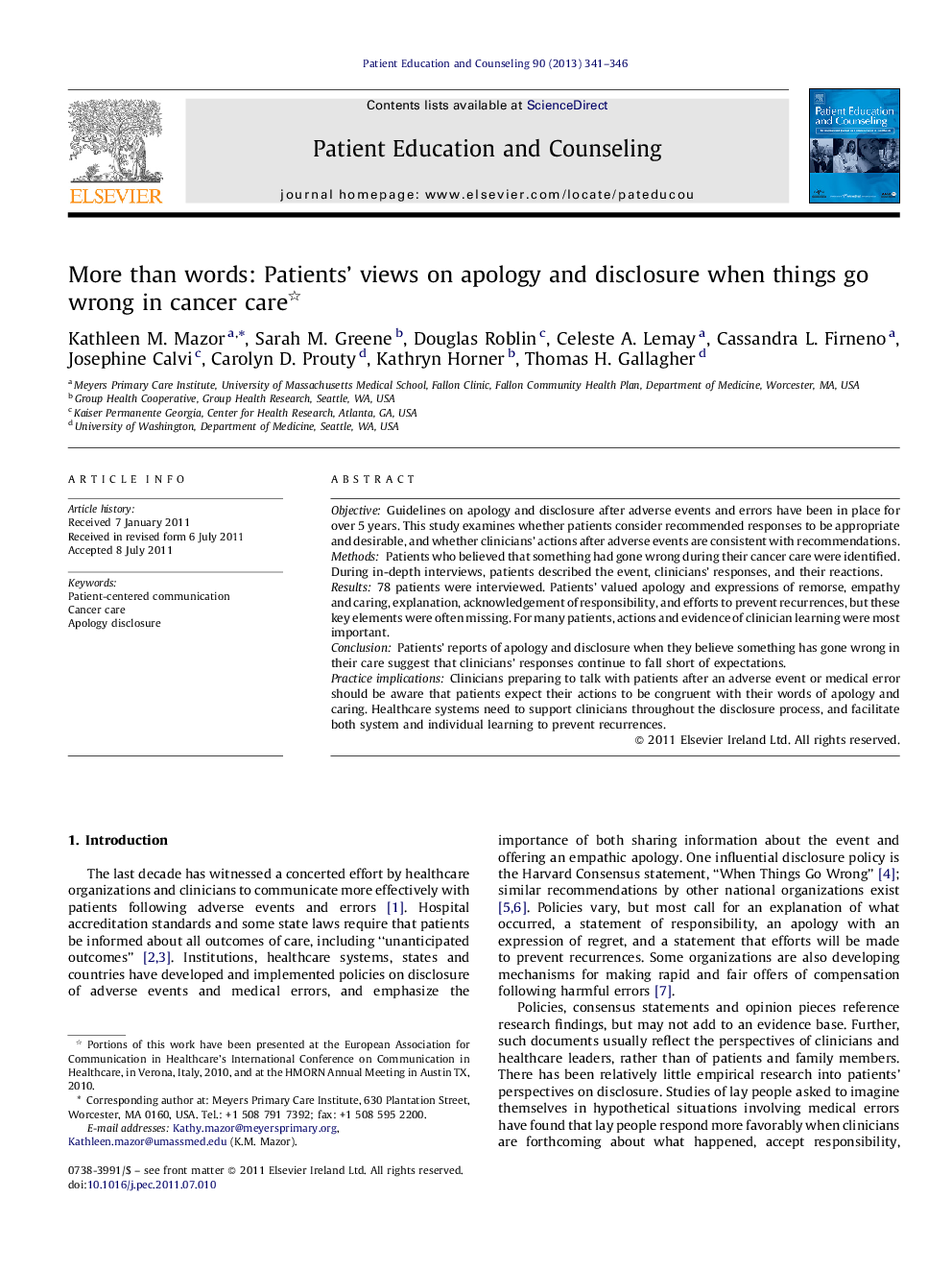| Article ID | Journal | Published Year | Pages | File Type |
|---|---|---|---|---|
| 3813504 | Patient Education and Counseling | 2013 | 6 Pages |
ObjectiveGuidelines on apology and disclosure after adverse events and errors have been in place for over 5 years. This study examines whether patients consider recommended responses to be appropriate and desirable, and whether clinicians’ actions after adverse events are consistent with recommendations.MethodsPatients who believed that something had gone wrong during their cancer care were identified. During in-depth interviews, patients described the event, clinicians’ responses, and their reactions.Results78 patients were interviewed. Patients’ valued apology and expressions of remorse, empathy and caring, explanation, acknowledgement of responsibility, and efforts to prevent recurrences, but these key elements were often missing. For many patients, actions and evidence of clinician learning were most important.ConclusionPatients’ reports of apology and disclosure when they believe something has gone wrong in their care suggest that clinicians’ responses continue to fall short of expectations.Practice implicationsClinicians preparing to talk with patients after an adverse event or medical error should be aware that patients expect their actions to be congruent with their words of apology and caring. Healthcare systems need to support clinicians throughout the disclosure process, and facilitate both system and individual learning to prevent recurrences.
